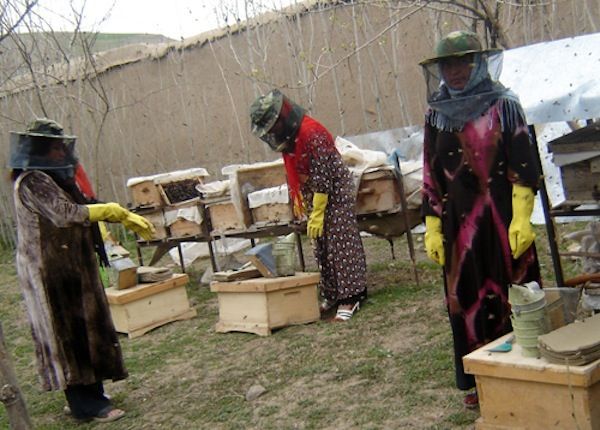
Agricultural co-operatives set up with support from the United Nations are providing a better life for women in Badakhshan, a province in the northeast of Afghanistan.
Forbidden for many years, co-operatives are allowed again in Afghanistan since 2001. Since then more than 3,000 co-operatives were re-registered. However, many one these are not familiar with co-operative values and principles and also need support for capacity building.
Badakhshan’s department of Agriculture revealed that around 1,500 women are active in the agricultural and business sectors throughout the province. There are now 18 women’s co-operatives across the province, each of these supported by international organsiations.
One such successful co-operative runs kitchen gardens and nursery projects in Badakhshan’s Shuhada district. The co-op was set up by a group of 46 women with help from the United Nation’s Food and Agriculture Organization (FAO). Through the FAO’s Women’s Development Centre (WDC) they received training on how to manage their co-operative.
Over 750 women from the region have so far taken part in FAO-sponsored projects. One of them is Ms Shaima, who said that by being member of the co-operative she was able to better cope with various challenges.
“We established a garden – it belongs to 46 women who are members of the co-operative. We harvested good vegetable products for our families and the neighbours this year.
“Before receiving the training through the WDC, I was not familiar with professional tree plantation and vegetable cultivation, and usually my farms were affected by natural disasters,” she said.
Women are not only taught how to set up kitchen gardens and nursery projects, but they can also receive training in beekeeping and establishing apiaries. FAO official responsible for implementing the local projects, Nazifa Natiq, said women’s co-operatives have been “very successful”, particularly because women work together as members of the co-operative, rather than individually.
“Based on our experience, women working in a group for beekeeping yields better results than working individually”, said Ms Natiq. She revealed that the FAO is planning to start a second group for the beekeeping project soon.
“Since the women are successful in their career and their products are of good quality, the government departments (of agriculture, irrigation and livestock) will establish markets in different parts of the province for the better sale of their yields,” said Nasir Ahmad Ahmadi, a local government official in charge of co-operatives in Badakhshan.
Photo: Women's beekeeping co-operative in Afghanistan.




